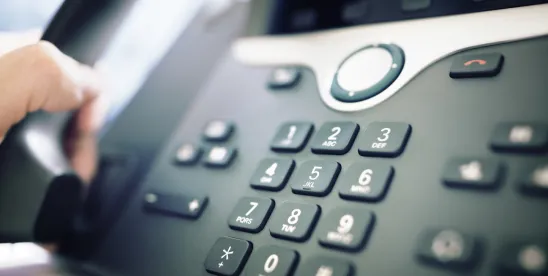As we’ve covered, earlier this year a unanimous Supreme Court held that the TCPA means what it says: for equipment to qualify as an ATDS, the TCPA “requires that in all cases, whether storing or producing numbers to be called, the equipment in question must use a random or sequential number generator.” Facebook, Inv. v. Duguid, 141 S. Ct. 1163, 1170 (U.S. 2021) (emphasis added). Now, we have a court applying Facebook and granting summary judgment to Bank of America in a debt collection case where the bank made hundreds of calls using the popular Avaya platform. See Barnett v. Bank of Am., N.A., 2021 U.S. Dist. LEXIS 101171 (W.D.N.C. May 28, 2021). The decision is great, and a nice win for Avaya. But the record is thin. So don’t get too excited.
The Good: Court Holds That Avaya System is Not ATDS after Facebook
Let’s start with the good news, the win. The Court paid proper fidelity to the Supreme Court’s reasoning in Facebook. For instance, Plaintiff’s counsel argued that the bank’s Avaya system “uses a random or sequential number generator” because Bank of America’s employees testified “that the numbers are selected for calls based on several factors.” However, the Court properly rejected that reasoning:
this very testimony undermines Plaintiff’s argument, as the numbers chosen for the calls are selected from a pre-existing list created based on criteria from the dialer administrators, rather than by random or sequential number generators.
Likewise, the Court rejected Plaintiff’s argument that the system’s ability to “leave a message” transformed it into an ATDS. Particularly after Facebook, the mere capability to leave a message “does not demonstrate that” the bank’s system “uses a random or sequential number generator[.]” Given all that, the Court concluded that Bank of America “is entitled to summary judgment based on the Supreme Court’s ruling in Facebook, along with the lack of Plaintiff’s evidence that the Avaya system uses a random or sequential number generator, and [the bank’s] affirmative evidence that the system does not use such a number generator.”
The Bad: A Thin Record
The decision is limited by the underlying record. Namely, according to Plaintiff’s counsel–as recounted by the Court–the bank failed to produce “critical information” on its “calling system,” despite a magistrate judge’s order compelling the production. And, indeed, the factual record as recounted by the Court is fairly sparse. For this case, the Court rejected the lack-of-discovery argument because Plaintiff failed to appeal the magistrate judge’s order or file a new motion to compel. But other defendants will face a different–potentially more fulsome–factual record. The bottom line: TCPA defendants should carefully consider the limits of this decision in seeking summary judgment on ATDS grounds after Facebook.
And there is a Bonus: Plaintiff Did Not Revoke Consent
The Court bootstrapped its ATDS decision with an alternative holding that Plaintiff “legally consented to receive the phone calls.” Specifically, Plaintiff initially “provided his cell phone number in his account application” and thus “he consented to be contacted on it unless he later revoked that consent.” And, applying cases from across the country, the Court held that Plaintiff could not “use ambiguous statements to revoke consent.” So neither Plaintiff’s “request to be contacted by mail,” nor Plaintiff’s statement that “he would contact” Bank of America were sufficient to revoke consent. The Plaintiff “did not explicitly withdraw his consent” so he “legally consented . . . to receive the phone calls in question.”
There it is. The first post-Facebook decision granting summary judgment, but with the wrinkle that the Court did not reach its decision on a complete factual record.




 />i
/>i

